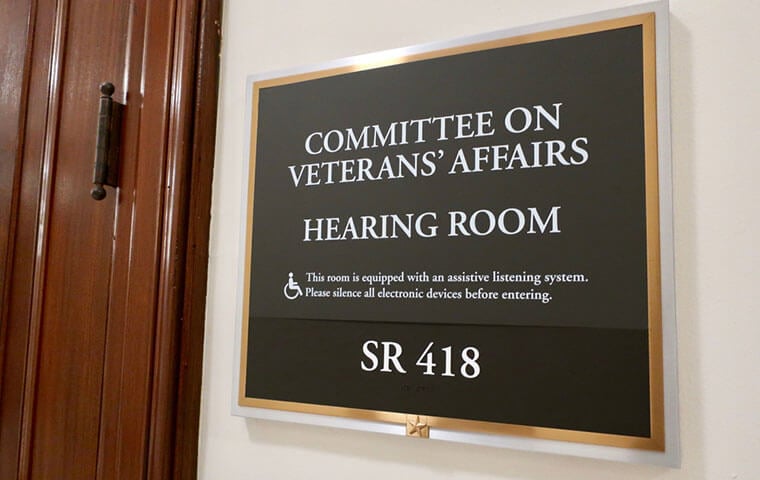 Introduction of the bill indicates that both sides of Congress are dissatisfied with accountability within the VA workforce. Image: DCStockPhotography/Shutterstock.com
By: FEDweek Staff
Introduction of the bill indicates that both sides of Congress are dissatisfied with accountability within the VA workforce. Image: DCStockPhotography/Shutterstock.com
By: FEDweek StaffLeaders of the Senate Veterans Affairs Committee have mapped out a different approach than their House counterparts regarding special disciplinary powers at the VA.
A newly introduced bill (S-2679) by chairman Sen. Jon Tester, D-Mont., and ranking Republican Sen. Jerry Moran of Kansas, “would reform VA’s oversight and accountability processes and tools to improve the department’s ability to take action against VA leaders and employees who have engaged in misconduct,” they said in a statement.
“It would also require department leaders at all levels to take more proactive oversight efforts to root out bad actors and empower rank-and-file employees to hold leadership accountable. These reforms would help prevent wrongdoing and leadership failures—increasing patient safety and the quality of services, care, and benefits at VA facilities across the country,” they said.
Introduction of the bill indicates that both sides of Congress are dissatisfied with what they call a lack of attention to poor performance among VA employees, especially in light of the department’s recent decision to stop using management-friendly powers it received in a 2017 law.
The VA argues that those authorities mainly bogged it down in legal challenges, many of which it lost; the department meanwhile recently reached a settlement agreement with the AFGE union after a finding by the FLRA that it failed to fulfill its bargaining obligations before carrying them out. That settlement could result in restoring several thousand employees fired or otherwise disciplined under those procedures, with back pay potentially into the hundreds of millions of dollars.
Unlike the new Senate bill, the House committee’s measure is a Republican initiative. It would not only require the VA to again begin using the management-friendly powers in the 2017 law but expand them, as well. A separate bipartisan bill introduced there afterward meanwhile would scale back the 2017 law.
Large Share of Federal Workforce about to Experience a Payless Pay Period
OPM Details Coverage Changes, Plan Dropouts for FEHB/PSHB in 2026
OMB Says Federal Workforce RIFs are Starting as Shutdown Drags On
Financial Impact of Shutdown Starts to Hit Home; WH Threatens No Back Pay
Surge of Retirement Applications Is in the Pipeline, Says OPM
See also,
TSP Takes Step toward Upcoming In-Plan Roth Conversions
5 Steps to Protect Your Federal Job During the Shutdown
Over 30K TSP Accounts Have Crossed the Million Mark in 2025
The Best Ages for Federal Employees to Retire

